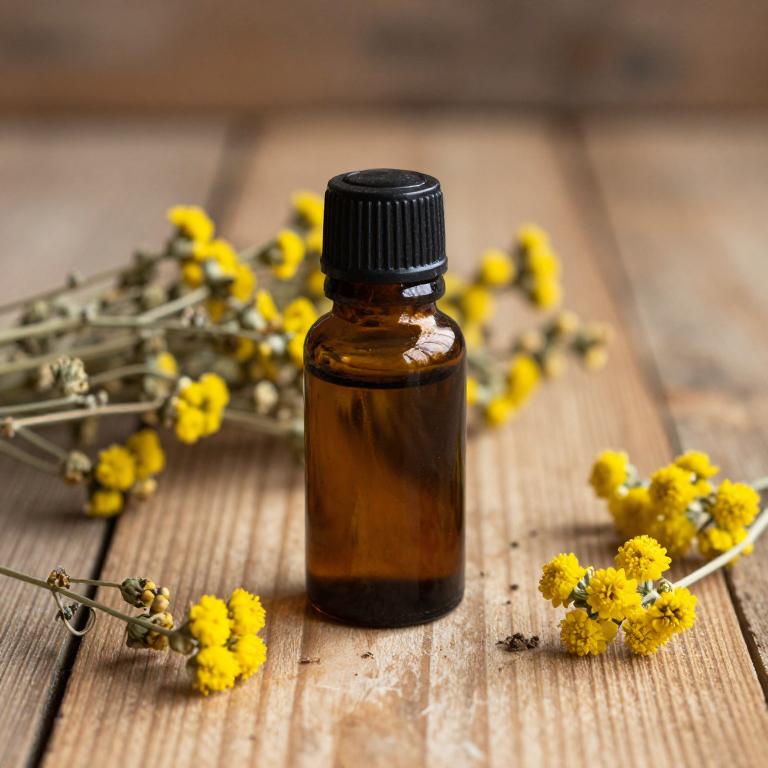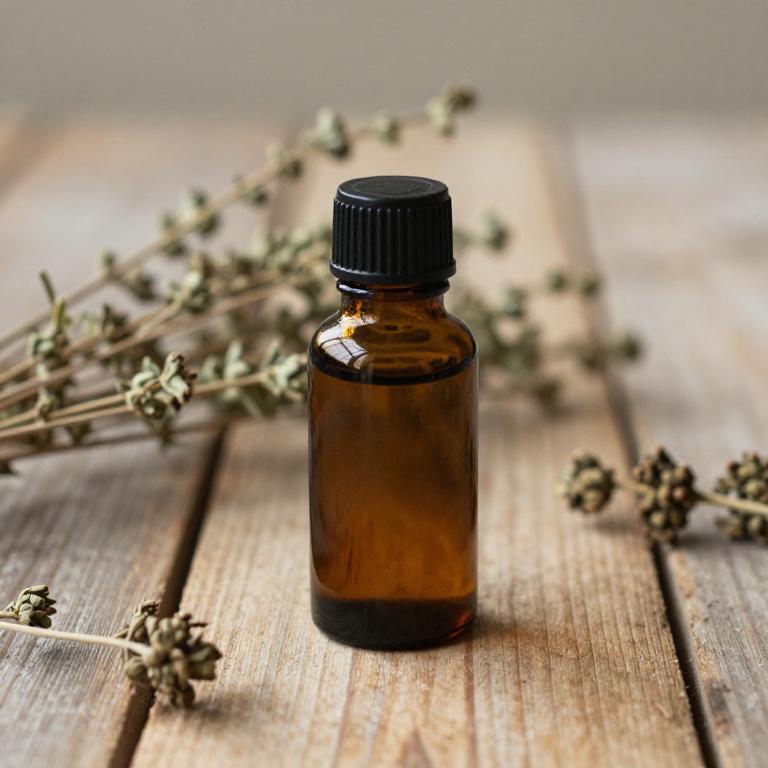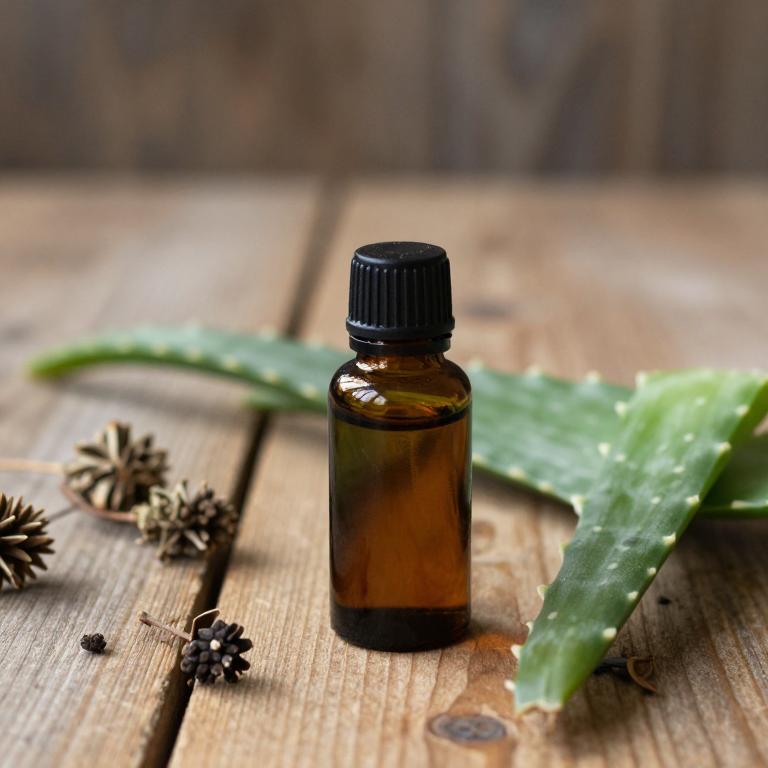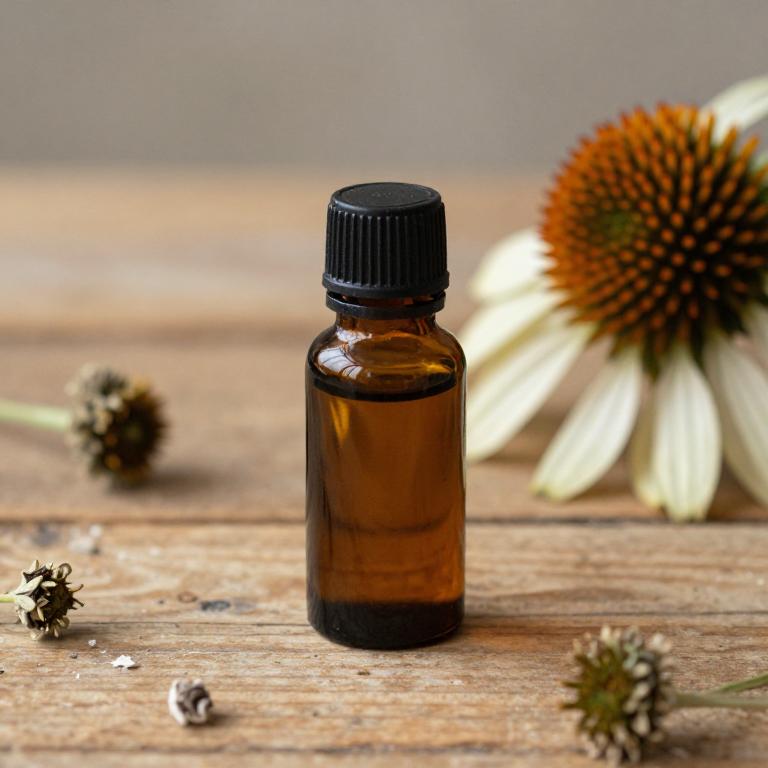10 Best Herbal Essential Oils For Mouth Ulcers

Herbal essential oils have gained popularity as natural remedies for alleviating the discomfort of mouth ulcers due to their antimicrobial and anti-inflammatory properties.
Oils such as tea tree, peppermint, and clove are commonly used because they can help reduce pain, swelling, and the risk of infection in mouth ulcers. These essential oils can be diluted with a carrier oil and applied topically to the affected area using a cotton swab or diluted in water for rinsing. While they offer potential benefits, it's important to use them cautiously to avoid irritation or allergic reactions.
Always consult with a healthcare professional before using essential oils, especially if you have underlying health conditions or are pregnant.
Table of Contents
- 1. Lemon balm (Melissa officinalis)
- 2. Oregano (Origanum vulgare)
- 3. Salvia (Salvia officinalis)
- 4. Thyme (Thymus vulgaris)
- 5. Aloe vera (Aloe barbadensis)
- 6. Ceylon cinnamon (Cinnamomum zeylanicum)
- 7. English lavender (Lavandula angustifolia)
- 8. Turmeric (Curcuma longa)
- 9. Echinacea (Echinacea purpurea)
- 10. Rosemary (Rosmarinus officinalis)
1. Lemon balm (Melissa officinalis)

Melissa officinalis, commonly known as lemon balm, is a herb that has been traditionally used for its calming and healing properties.
Its essential oil, derived through steam distillation of the fresh leaves, contains compounds such as linalool and citral, which possess anti-inflammatory and antimicrobial effects. When used topically, Melissa officinalis essential oil can help reduce the pain and inflammation associated with mouth ulcers due to its soothing properties. It is often diluted with a carrier oil before application to avoid irritation.
Some studies suggest that the essential oil may also promote faster healing of oral sores by supporting tissue regeneration.
2. Oregano (Origanum vulgare)

Oregano vulgare, commonly known as oregano, is a popular herb whose essential oil has been traditionally used for its potent antimicrobial and anti-inflammatory properties.
The essential oil of Oregano vulgare contains high concentrations of carvacrol and thymol, which are known to inhibit the growth of bacteria and fungi that may contribute to oral infections. Studies suggest that applying diluted oregano essential oil to mouth ulcers may help reduce pain and accelerate the healing process due to its soothing and protective effects on the mucous membranes. However, it is important to use the oil in a properly diluted form to avoid irritation, as undiluted essential oils can be harsh on sensitive oral tissues.
While oregano essential oil shows promise as a natural remedy for mouth ulcers, it should be used under the guidance of a healthcare professional to ensure safety and effectiveness.
3. Salvia (Salvia officinalis)

Salvia officinalis, commonly known as sage, contains essential oils that have been traditionally used for their anti-inflammatory and antimicrobial properties.
These essential oils, including components like thujone and cineole, can help reduce the pain and inflammation associated with mouth ulcers. When diluted properly, sage essential oil can be applied topically to the affected area to promote healing and prevent infection. Its astringent qualities may also help in reducing the size of ulcers and accelerating the recovery process.
However, it is important to use sage essential oil with caution, as it can be irritating if not properly diluted, and should be avoided during pregnancy or by individuals with certain medical conditions.
4. Thyme (Thymus vulgaris)

Thymus vulgaris, commonly known as thyme, is a popular herb used in aromatherapy and traditional medicine for its potent essential oils.
The essential oils derived from thyme contain high concentrations of thymol, a powerful antiseptic and anti-inflammatory compound. These properties make thymus vulgaris essential oils a potential natural remedy for mouth ulcers, as they can help reduce infection and soothe inflammation in the oral cavity. When diluted properly, thyme essential oil can be applied topically to the affected area to promote healing and alleviate discomfort.
However, it is important to use caution and consult with a healthcare professional before using essential oils, as they can be potent and may cause irritation if not properly diluted.
5. Aloe vera (Aloe barbadensis)

Aloe barbadensis, commonly known as aloe vera, contains various bioactive compounds that may help alleviate symptoms of mouth ulcers.
The essential oils derived from aloe vera are rich in anti-inflammatory and antimicrobial properties, which can reduce pain and promote healing in oral ulcers. These oils can be applied topically to the affected area to soothe irritation and prevent infection. However, it is important to ensure that the essential oils are properly diluted to avoid irritation of the sensitive oral mucosa.
While aloe vera is often used in natural remedies for mouth ulcers, it is advisable to consult a healthcare professional before using it as a treatment.
6. Ceylon cinnamon (Cinnamomum zeylanicum)

Cinnamomum zeylanicum, commonly known as cinnamon, produces essential oils that have been traditionally used for their antimicrobial and anti-inflammatory properties.
These oils contain compounds like cinnamaldehyde and eugenol, which can help reduce the bacterial load and inflammation associated with mouth ulcers. When used in diluted form, cinnamon essential oil may provide a soothing effect on oral tissues and promote faster healing. However, it is important to dilute the oil properly with a carrier oil to avoid irritation.
While some anecdotal evidence supports its use, more scientific research is needed to fully confirm its effectiveness for treating mouth ulcers.
7. English lavender (Lavandula angustifolia)

Lavandula angustifolia, commonly known as English lavender, is widely recognized for its calming and healing properties, making its essential oil a valuable natural remedy for mouth ulcers.
The essential oil contains compounds such as linalool and linalyl acetate, which possess anti-inflammatory, antimicrobial, and analgesic effects, helping to reduce pain and promote faster healing of oral sores. When diluted with a carrier oil, lavender essential oil can be applied directly to the affected area using a cotton swab, offering a soothing and effective treatment option. Its mild scent also has a calming effect, which can help alleviate the discomfort and stress often associated with mouth ulcers.
Overall, lavender essential oil serves as a safe and effective alternative for managing the symptoms of mouth ulcers in a natural and holistic manner.
8. Turmeric (Curcuma longa)

Curcuma longa, commonly known as turmeric, contains a bioactive compound called curcumin, which is often extracted into essential oils for its potent anti-inflammatory and antimicrobial properties.
These essential oils have been explored for their potential to alleviate symptoms of mouth ulcers by reducing inflammation and preventing infection. Studies suggest that the application of curcuma longa essential oils can promote healing by enhancing tissue regeneration and modulating immune responses. However, it is important to use these oils cautiously, as they may cause irritation if not properly diluted.
Overall, curcuma longa essential oils offer a natural and promising alternative for managing oral ulcers, though further clinical research is needed to confirm their efficacy and safety.
9. Echinacea (Echinacea purpurea)

Echinacea purpurea, commonly known as purple coneflower, is a well-known herbal remedy often used for its immune-boosting properties.
While primarily recognized for its benefits in supporting the immune system, echinacea purpurea essential oil has also been explored for its potential in alleviating symptoms of mouth ulcers. The essential oil contains compounds such as alkamides, caffeic acid, and flavonoids, which possess anti-inflammatory and antimicrobial properties that may help reduce pain and promote healing in oral ulcers. When used topically, the oil can be diluted with a carrier oil and applied directly to the affected area to provide localized relief.
However, it is important to consult with a healthcare professional before using echinacea essential oil, as it may interact with certain medications or cause allergic reactions in some individuals.
10. Rosemary (Rosmarinus officinalis)

Rosmarinus officinalis, commonly known as rosemary, produces an essential oil that has been traditionally used for its anti-inflammatory and antimicrobial properties.
This oil contains compounds such as cineole and camphor, which may help reduce the pain and inflammation associated with mouth ulcers. When diluted properly, rosemary essential oil can be applied topically to the affected area to promote healing and soothe discomfort. However, due to its potency, it should never be used undiluted to avoid irritation.
While some studies suggest its potential benefits, more research is needed to fully understand its effectiveness in treating mouth ulcers.